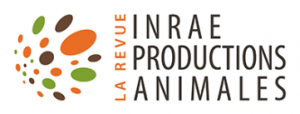Document type: scientific synthesis published in INRAE Animal Productions
Authors: Anne Collin, Vincent Coustham, Jacob Kokou Tona, Sophie Tesseraud, Sandrine Mignon-Grasteau, Bertrand Méda, Anaïs Vitorino Carvalho, Yann Guyot, Sandrine Lagarrigue, Frédérique Pitel, Tatiana Zerjal
Preview: What mitigation and adaptation strategies for poultry production in the face of climate change?
Poultry meat and eggs are major sources of animal protein for human consumption worldwide. Their production has increased rapidly in recent decades. However, poultry production is vulnerable to climate change, in particular to global warming and its direct and indirect consequences. To cope with this, it is necessary to implement adaptation strategies at the animal level, in particular by improving the resilience of the animals; these strategies require, on the one hand, a better understanding of the physiology of the birds (thermoregulation, efficiency for meat and egg production, etc.) and, on the other hand, the search for innovations in relation to nutrition, health, early reprogramming or genetics (integration of new adaptive traits in selection strategies). Solutions also need to be found at the production systems level to take into account the changes in the geographical distribution of diseases linked to climate change and to introduce mitigation practices to reduce energy consumption and greenhouse gas emissions. Interdisciplinary research focusing on genetics, technical methods (such as early thermal programming), engineering solutions, nutritional innovations and new breeding strategies is being developed. These strategies consider the growing social demand for ethical animal production in the perspectives of the " One Health " and " One Welfare " concepts and limit the feed -food competition in the context of climate change. This review illustrates through a few examples the levers of improvement and combined adaptive strategies that can be considered to make poultry production systems more resilient in the context of climate change.






